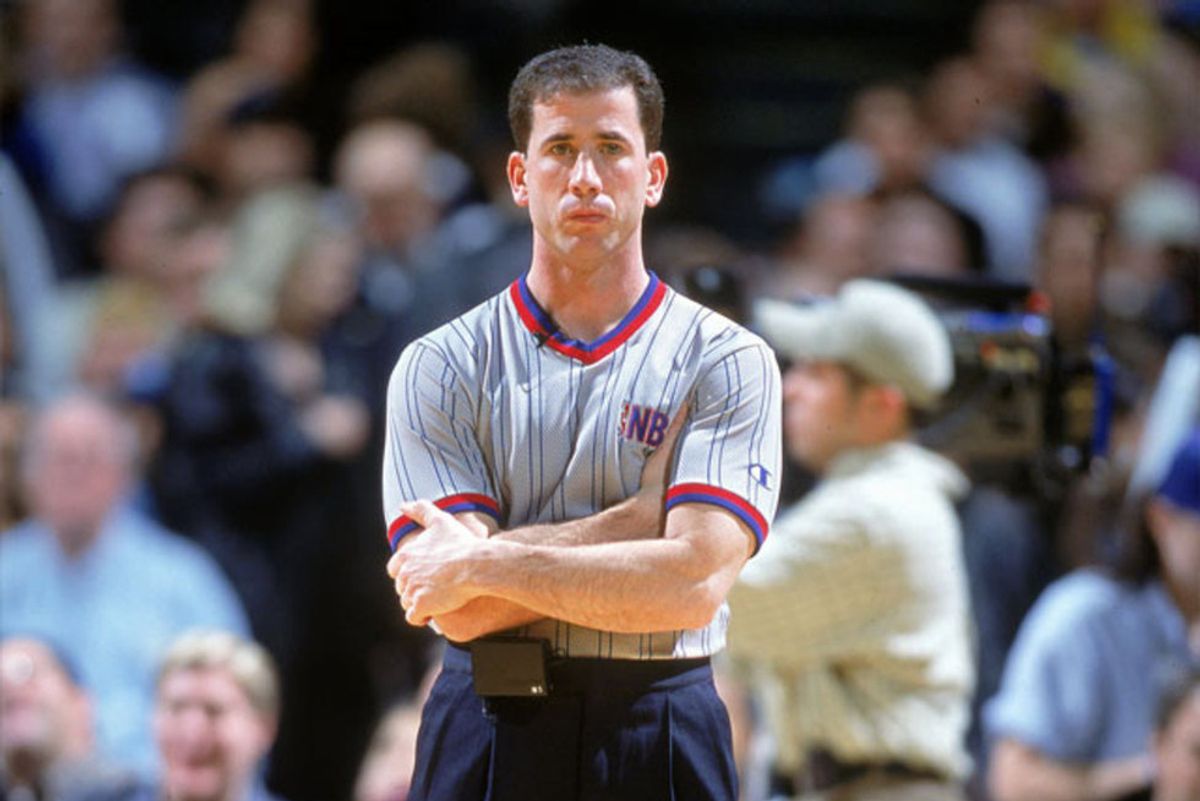10 QUESTIONS FOR TIM DONAGHY
Ken Hoffman catches up with a disgraced NBA referee ahead of his new biopic
Nov 4, 2019, 3:19 pm
10 QUESTIONS FOR TIM DONAGHY

For two years during his career as an NBA referee, Tim Donaghy did more than send players to the free throw line and "T up" abrasive coaches. He and two cohorts cashed millions with Donaghy making questionable calls and betting on games that he was officiating.
On November 1, Donaghy's story comes to the big screen in Inside Game – The True Story of the NBA Betting Scandal — starring Eric Mabius as Tim Donaghy, and Scott Wolf and Will Sasso as Donaghy's childhood buddies and co-conspirators Tommy Martino and James "Baba" Battista.
Donaghy refereed 772 regular season and 20 playoff games between 1994 and 2007. During his last two years as an NBA ref, he used inside information he gained from relationships with other referees, coaches, players, and front office personnel to gain an illegal betting edge.
Eventually the FBI wised up to his scheme during a separate investigation. Donaghy was sentenced to 15 months in prison. He was released after 11 months, only to return behind bars to complete his sentence for violating terms of his release.
In 2009, Donaghy wrote a memoir, Blowing the Whistle: The Culture of Fraud in the NBA, later retitled Personal Foul: A First Person Account of the Scandal that Rocked the NBA. The movie Inside Game is not based on Donaghy's book, however, and he had no input in the film's production. He is helping to promote the film, and that's how I got him on the phone last week.
Tim Donaghy: I was hoping for a little control over the script, and that was something they wouldn't do. We couldn't come to an agreement, so I passed on getting involved as a consultant. I thought that I had done enough wrong in my life that they didn't need me to add anything. Every time I hope the story goes away something pops up.
TD: I have seen the film. I like it. I think there's a great message in the film about how important choices are, and how the choices you make affect other people. They did a good job of getting the story correct.
TD: I think you're going to have a situation on the college level where they go to one of these players who isn't going to make it on the next level and offer him a large sum of money. Let's say his team is favored by a large number, maybe 15 points. You tell the player, you can still win the game, just don't win the game by more than 10 or 11 or 12 points. I think that's where you're going to see the next scandal. Some of these college kids don't have much money and they need money for their families.
Continue on CultureMap to read the rest of this fascinating interview.
Oswald Peraza hit a two-run single in the ninth inning to help the Los Angeles Angels snap a three-game losing skid by beating the Houston Astros 4-1 on Saturday night.
Peraza entered the game as a defensive replacement in the seventh inning and hit a bases-loaded fly ball to deep right field that eluded the outstretched glove of Cam Smith. It was the fourth straight hit off Astros closer Bryan Abreu (3-4), who had not allowed a run in his previous 12 appearances.
The Angels third run of the ninth inning scored when Mike Trout walked with the bases loaded.
Kyle Hendricks allowed one run while scattering seven hits over six innings. He held the Astros to 1 for 8 with runners in scoring position, the one hit coming on Jesús Sánchez’s third-inning infield single that scored Jeremy Peña.
Reid Detmers worked around a leadoff walk to keep the Astros scoreless in the seventh, and José Fermin (3-2) retired the side in order in the eighth before Kenley Jansen worked a scoreless ninth to earn his 24th save.
Houston’s Spencer Arrighetti struck out a season-high eight batters over 6 1/3 innings. The only hit he allowed was Zach Neto’s third-inning solo home run.
Yordan Alvarez had two hits for the Astros, who remained three games ahead of Seattle for first place in the AL West.
Peraza’s two-run single to deep right field that broke a 1-1 tie in the ninth.
Opponents were 5 for 44 against Abreu in August before he allowed four straight hits in the ninth.
Astros RHP Hunter Brown (10-6, 2.37 ERA) faces RHP José Soriano (9-9, 3.85) when the series continues Sunday.
